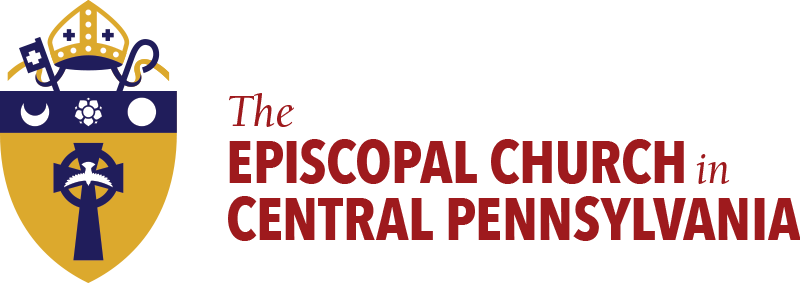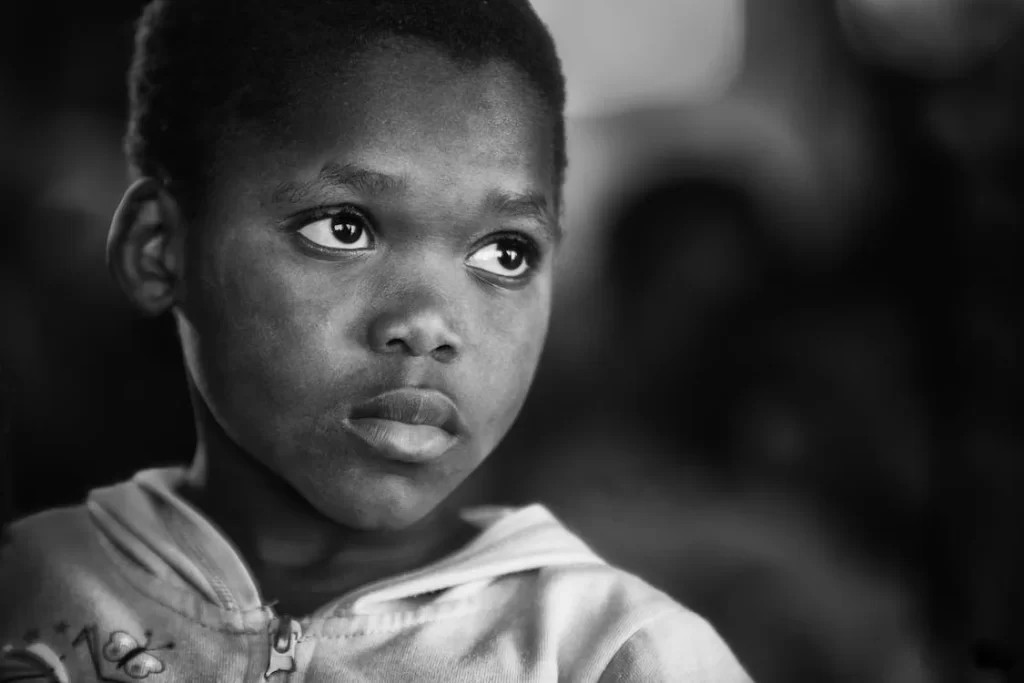
The Journey
For helpful resources on every stage of the journey to understanding and dismantling racism, click one of the links found here:
Definitions
Click the links below to learn more:
- Racial Equity Tools Glossary
- NIH Racial Terms and Differences
- CSSP Key Equity Terms & Concepts
- Pacific U Oregon - Equity, Diversity, & Inclusion Glossary
- NEA - Racial Justice in Education: Key Terms & Definitions
- ICMA - Glossary of Terms: Race, Equity and Social Justice
- Georgetown University Anti-Racism Toolkit: Glossary of Terms
Autobiographies & Selected Resources
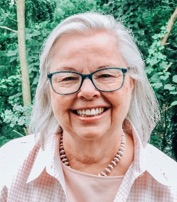 My name is Sharon S. England, and I am a member of St. Paul’s Episcopal Church in Harrisburg. I am active in the Union of Black Episcopalians, Bishop Baxter Chapter, and I volunteer in the church school. I have been married for over 45 years. We have two adult daughters, five grandchildren, and an adult son, who joined our family at the age of 12, after my husband and I became foster parents.
My name is Sharon S. England, and I am a member of St. Paul’s Episcopal Church in Harrisburg. I am active in the Union of Black Episcopalians, Bishop Baxter Chapter, and I volunteer in the church school. I have been married for over 45 years. We have two adult daughters, five grandchildren, and an adult son, who joined our family at the age of 12, after my husband and I became foster parents.
I grew up in a white middle class community where my exposure to people of color was very limited. Race and racism were not discussed in the all-white churches I attended as a child. In February 2021, I retired after a 45-year career in child welfare in a variety of positions. My first significant professional social work position was at the Baltimore City Department of Social Services, child abuse unit. There I learned of the lived experience of racism from my colleagues and my clients and witnessed firsthand the debilitating impact of institutional and individual racial discrimination.
Throughout my career I have struggled to have an impact on the inequity in the child welfare system. There was a time when I reflected on my own personal and professional prejudices and biases and mistakenly concluded that through my work and personal experiences, I had overcome them. In my most recent position, the last two years we were engaged in an endeavor to become an anti-racist organization. It was through this work and intensive study I have come to recognize how I have fallen short in my attitudes and efforts. The work to dismantle racism requires purposeful and continuous self-reflection, study, and most importantly, action.
Resources that I have found valuable in this ongoing journey include, but are not limited to:
- Just Mercy: A Story of Justice and Redemption by Bryan Stevenson
- So you want to talk about race by Ijeoma Oluo
- White Fragility: Why It’s so Hard for White People to Talk About Racism by Robin Diangelo
- Learning to Be White by Thankdeka (out of print)
- How To Be An Antiracist by Ibram X. Kendi
- Historical Lynchings and Contemporary Voting Behavior of Blacks by Jhacova Williams
- Lynchings a century ago affect black voting behavior today | Economic Policy Institute (epi.org)
- Stages of Structural Racism Awareness (burnsinstitute.org)
- Harvard Implicit Bias Test (harvard.edu)
- John McWhorter Associate Professor Linguistics at Columbia University and writes a column for the New York Times, provides a different perspective on “woke” Racism and Anti-Racism.
- Exterminate All the Brutes (HBO)
- U.S. Civil Rights Trail: A Traveler’s Guide To the People, Places, and Events That Made the Movement, Moon (my husband and I will be embarking on our second trip following this trail in March 2023)
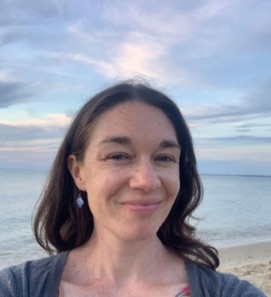
My name is Micalagh Moritz, and I am a member of St. Paul’s Episcopal Church in Harrisburg. I grew up in a racially diverse area of the country in Northern New Jersey where I had friends of various races and backgrounds. However, I didn’t really begin to examine and understand the nuances of racism and the systems of white supremacy until I went to college in Central PA.
I participated in my first anti-racism training with Crossroads in 2008, and then was involved in several trainings with the People’s Institute for Survival and Beyond in subsequent years through our Diocese. I have continually tried to deepen my learning and understanding of this important work in the various facets of my life, as a social worker, as a mother of young children, in my work in the Harrisburg area and at St. Stephen’s Cathedral, as a friend and a community member.
The work of anti-racism is a journey without an end point. As a white person, I will always be striving to learn more, to do better, and to challenge the norms of our society built on white supremacy.
Austin Channing Brown has said, “The work of anti-racism is about becoming a better human to other humans.” I see this work as a necessity to being a person of faith, learning how to treat others better and build a better world together.
Here are a few resources that have been meaningful for me in the journey of anti-racism:
- Seeing my Skin by Peter Jaret-Schell
- I’m Still Here by Austin Channing Brown
- Trouble I’ve Seen by Drew Hart
- Jesus and the Disinherited by Howard Thurman
- Dear Church by Lenny Duncan
- Me & White Supremacy by Layla Saad
- On Being with Resmaa Menakem (podcast episode)
- The Body is Not an Apology – Brene Brown and Sonya Renee Taylor (podcast episode)
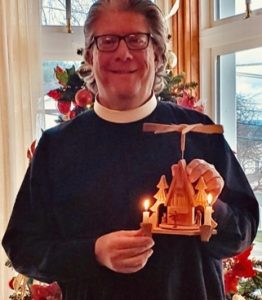
My name is Michael Nailor and I serve as Deacon at St. Stephen’s Episcopal Cathedral in Harrisburg and at the Philadelphia Episcopal Cathedral. I participated in the last iteration of the Dismantling Racism group in our Diocese and through that group I am participating in an accountability group (now 5 members) that meets weekly to check in with each other on our ongoing anti-racism efforts. I’m glad to serve as the co-chair of the current Dismantling Racism Commission.
My discernment of the work that I needed to do personally and as part of the parishes and dioceses I serve stems from the murder of Trayvon Martin in February 2012. When his murderer was set free by our justice system – I knew that my years of passive support for the status quo had to come to an end.
Two of the most formative experiences in anti-racism for me were the workshops that I attended led by the People’s Institute for Survival and Beyond and the Episcopal Church’s curriculum of Sacred Ground. Serving as a small group leader for Sacred Ground and struggling with the readings and video content with 8 other folks over a 10 month period revealed to me much history that I never knew.
Two resources for me that were instrumental were James H. Cone’s theology in Black Theology and Black Power (1997) and How to Fight Racism (2021) by Jemar Tisby. The first is one of the few books that I was assigned in my seminary courses that I have read over and over. Cone writes, “I wanted to speak on behalf of the voiceless black masses in the name of Jesus whose gospel I believed had been greatly distorted by the preaching and theology of white churches.” It left me wondering how angry I would be on a daily basis if I found that my religion had turned against me. Tisby’s book (and the accompanying workbook) talks about what “Courageous Christianity” means in our day as we work towards racial justice and reconciliation.
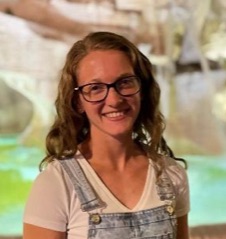 Hi everyone! My name is Emma Di Pace. I’m from St. John’s Lancaster. I am a member of the Dismantling Racism Committee for the Diocese of Central Pennsylvania. I am also a member of the Diocesan Youth Task Force. I am currently hanging out in the Diocese of Pennsylvania as the Director of Children and Youth Ministries at the Episcopal Church of the Advent in Kennett Square, and as the Bridge Youth Director of St. Michael Lutheran Church.
Hi everyone! My name is Emma Di Pace. I’m from St. John’s Lancaster. I am a member of the Dismantling Racism Committee for the Diocese of Central Pennsylvania. I am also a member of the Diocesan Youth Task Force. I am currently hanging out in the Diocese of Pennsylvania as the Director of Children and Youth Ministries at the Episcopal Church of the Advent in Kennett Square, and as the Bridge Youth Director of St. Michael Lutheran Church.
The first time I was exposed to the truth of racism being an issue beyond simply being “nice” to other people was during the fall of my sophomore year of college. I attended a presentation with Dr. Maureen O’Connell, a professor in the Religion and Theology department at La Salle University. She was talking about the history of redlining in Philadelphia, and how parish priests across different denominations had had their parishioners sign covenants that said that they would not sell their houses to black people. This deeply shocked me and at the same time spurred my curiosity into what other entanglements the church has had and continues to have with racism in our nation.
Here are some resources and voices that have been significant to me in my journey to becoming anti-racist.
The Church and Racism
- Joseph Barndt’s Becoming an Anti-Racist Church: Journey toward Wholeness is historical, theological, spiritual, and practical. Barndt homes in on mainline denominations and offers important distinctions between what he calls the Ruler’s Church and the People’s Church. He unpacks the differences between individual and collective sin and names systemic racism as a collective sin, offering that we are responsible to undo systemic racism not me or they. Barndt offers that power can, in fact, be a force of good if used correctly, and that it will not be enough to simply dismantle institutionalized racism in our churches. We will also need to institutionalize anti-racism within our churches.
- Kelly Brown Douglas’ Stand Your Ground: Black Bodies and the Justice of God weaves in the story of Trayvon Martin, at 17-year-old who was shot leaving a store in his neighborhood with a pack of skittles and an iced tea. In between, she unpacks the different ideas that came to lead up to that event and the not guilty verdict for his murderer. She explains the wat the Black body has been seen as criminal and dangerous, and how the idea of Manifest Destiny has shown up in different ways in human history. Part two of her books shifts to examining what this means for people’s faith and how we can think about Jesus and his crucifixion in relation to Trayvon’s murder.
Racism and Incarceration
- Bryan Stevenson’s Just Mercy was captivating, heartbreaking, transforming. Stevenson brilliantly intertwines his story as a lawyer with that of his clients, revealing injustices in the criminal justice system and the history and laws that maintain them. This book will change how you think about people who are incarcerated and the death penalty. And the title “Just Mercy” will take on an entirely different meaning by the end. “Everyone is more than the worst thing they’ve ever done”.
- Ava DuVernay’s 13th is a documentary available to stream on Netflix. Different scholars, activists, and politicians come together to look at the ways in which the 13th amendment did not abolish slavery, but merely redesigned it in the form of the prison industrial complex.
From Black Voices
- I cannot recommend Alice Walker’s The Color Purple enough. The way the characters come to understand race, relationships, politics at home and abroad, religion, God, and how to be in their own bodies is all so intrinsically woven together through a collection of raw and real letters. This book will continue to break your heart and heal it—a definite must read.
- Adrienne Maree Brown’s Emergent Strategy is my go-to when I’m feeling overwhelmed by the enormous scale of change that needs to occur. She looks at different systems and beings in nature and connects this with creating social change that is both effective and sustainable. brown is a talented writer, intertwining descriptive images with inspiration for her readers to look at where they are and what impact they can have right there.
 ’m Marilyn Pyeatt from St. Luke’s Altoona. My husband and younger son moved to Pennsylvania in 2016 from Texas, where I had the great blessing of working closely with a large number of people of color. I am particularly grateful to those with whom I did trainings across the US,; traveling together gave me a wonderful opportunity to learn more about how ingrained racism is in this country. Despite that, I now know that I was clueless about a lot, and it wasn’t until I took the “Becoming Beloved Community” course that I really got serious about my anti-racist journey.
Here are a few resources that have helped me open my eyes and my heart.
’m Marilyn Pyeatt from St. Luke’s Altoona. My husband and younger son moved to Pennsylvania in 2016 from Texas, where I had the great blessing of working closely with a large number of people of color. I am particularly grateful to those with whom I did trainings across the US,; traveling together gave me a wonderful opportunity to learn more about how ingrained racism is in this country. Despite that, I now know that I was clueless about a lot, and it wasn’t until I took the “Becoming Beloved Community” course that I really got serious about my anti-racist journey.
Here are a few resources that have helped me open my eyes and my heart.
- “So You Want to Talk about Race”, a New York Times bestseller by Ijeoma Oluo, is a really easy read with lots of human interest. I almost felt I knew her personally by the time I was done, since she writes in a way that’s like she’s talking to an admittedly clueless friend. She is so upfront about her struggles in a world where being a person of color affects every aspect of her life. At the same time, she covers a wide range of situations and terms in a very thorough and understandable way. A really good read for those unsure about where to start.
- “Born a Crime” by Trevor Noah may be the story of him growing up in South Africa, but time and again you’ll encounter attitudes and situations that are seen regularly in the United States. Noah covers cultural norms, family conflict, poverty, apartheid, and much more, all with his famous comedic style. It’s available as a traditional print book or as an audiobook narrated by Noah, and there’s even a version adapted for young readers (10 and up). An enjoyable read but so much more!
- Becoming Beloved Community — The Diocese of Iowa created a wonderful website with a huge range of resources, formatted in a way that lets you move at your own pace and prayerfully work your way through a variety of topics. It is organized by month with each one dedicated to a specific topic, including intersectionality, Black women, Asian Americans, housing, schools, and much more. Check it out!
- Last but not least, I recommend the Equal Justice Initiative (EJI) website and their daily “A History of Racial Injustice” calendar (available in print, online, and by email). I chose the emails, which are now part of my regular spiritual commitment; they remind me of or reveal to me the horrific things done in this country to support the un-Christian concept of white supremacy. This has really impacted my awareness and my re-pentance. Subscribe to the daily calendar emails by clicking here, or go to https://eji.org to view the web-site where you can plan a visit to Montgomery, Alabama to see their new Legacy Museum, to learn more about EJI’s work, or to view highlighted current news stories, book recommendations, and much more.
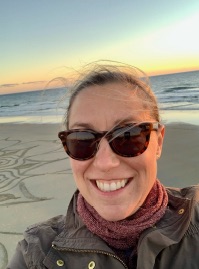 Sarah Reid
Sarah Reid
Trinity Pro-Cathedral Williamsport
West Branch Convocation
Dismantling Racism Commission of the Episcopal Diocese of Central PA
I’m a life long Pennsylvanian and a younger Episcopalian, having served 10 years in many lay positions in my Parish, at the diocesan and national levels. I believe that antiracism is a direct mandate of the gospels. It is part of our baptismal covenant to seek justice and Christ in all persons which is key to our identity as Episcopalians. These things encourage me to engage in the work of dismantling racism in our diocese.
In my spare time I enjoy outdoor activities, cooking and spending time with family and pets. In order to work toward dismantling racism we must take a multifaceted approach, that encompasses listening, self reflection, education, invitation and advocacy. We must listen to voices outside of our own experiences, actively educate ourselves, and be open to begin sharing our stories of growth, as well as failures. We then invite others to a deeper understanding of seeking and serving Christ in all persons.
I consider myself a teller of stories, so naturally I prefer fiction as a starting point in the work of antiracism. I recommend picking a novel or a collection of poems and familiarizing yourself with it, and exploring what may have surprised you, or can you see yourself in any of the characters. As you progress in your own self reflection perhaps try a piece of nonfiction.
- The Vanishing Half – Brit Bennett
- How to Be an Antiracist – Ibram X. Kendo
- Behold the Dreamers – Imbolo Mbundu
- Me and White Supremacy – Layla Saad
- Toward the Final Solution: A history of European Racism – George L. Mosse
- White Fragility – Robin DiAngelo
- The Immortal Life of Henrietta Lacks – Rebecca Skloot
- Between the World and Me – Ta-Nehisi Coates
- The Water Dancer – Ta-Nehisi Coates
- Island Beneath the Sea – Isabel Allende
- An American Sunrise – Joy Harjo
- An Islamic Jihad of Non-violence – Salish Sayilgan
- Woman of Light – Kali Fajardo-Anstine
- The Sin of White Supremacy – Jeannine Hill Fletcher
- A Women’s Lectionary for the Whole Church – Wilda Gafney
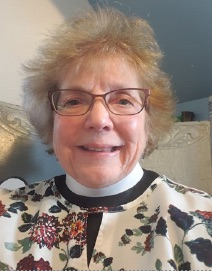 The Rev. Linda Watkins: I am Rector of St. Mary’s in Waynesboro and serve as Chaplain to the Dismantling Racism Committee. This work represents a deepening of my long-time work advocating for Social Justice. I have come to understand that the work of antiracism is the work of deepening our commitment to be disciples of Jesus Christ.
The Rev. Linda Watkins: I am Rector of St. Mary’s in Waynesboro and serve as Chaplain to the Dismantling Racism Committee. This work represents a deepening of my long-time work advocating for Social Justice. I have come to understand that the work of antiracism is the work of deepening our commitment to be disciples of Jesus Christ.
Helpful Resources:
- Isabel Wilkerson: Caste: The Origins of our Discontents
The notion that Nazi leaders modeled their anti-Jewish policies on American Jim Crow was frightening and sobering. I found it engaging and ultimately helpful in my deepening awareness of racism. - Ibram X. Kendi: Stamped from the Beginning: The Definitive History of Racist Ideas in America
I couldn’t put this book down. It engaged me in examining American history and confronted me with unexpected truths about racism on nearly every page. - Ibram X. Kendi: How to Be an Antiracist
I read this as part of a book study sponsored by Province III. It made me look at how I had always approached antiracism work; what was truly helpful and what was not. - Exterminate All the Brutes
Four-part HBO documentary narrated by Raoul Peck. There is also a book by Sven Lindquist. This is hard to watch but opened my eyes to the history of colonialism and genocide in a powerful way.
 I am Sarah Weedon, Rector of St Andrew’s Lewisburg and Chair of the Disman-tling Racism in Central Pennsylvania Commission of the Episcopal Diocese of Central Pennsylvania. I had very little experience with racism when growing up because I went to a very White high school and a very White college. It wasn’t until I began working as a volunteer with a social issue organization that I began to listen to the stories of my Black colleagues and heard about the real lives of those who had to live with racism. Later my family was enriched with new mem-bers from around the world, and with the birth of my bi-racial grandchildren the issue came directly home. I truly apologize for my ignorance and passivity all these years. I do this work for the world that God has dreamed for us.
I am Sarah Weedon, Rector of St Andrew’s Lewisburg and Chair of the Disman-tling Racism in Central Pennsylvania Commission of the Episcopal Diocese of Central Pennsylvania. I had very little experience with racism when growing up because I went to a very White high school and a very White college. It wasn’t until I began working as a volunteer with a social issue organization that I began to listen to the stories of my Black colleagues and heard about the real lives of those who had to live with racism. Later my family was enriched with new mem-bers from around the world, and with the birth of my bi-racial grandchildren the issue came directly home. I truly apologize for my ignorance and passivity all these years. I do this work for the world that God has dreamed for us.
Sarah’s List of Resources:
- “Eyes on the Prize”: a PBS video series of the Civil Rights Movement from the mid-50’s on.
This was the first time I really realized that the indignities that Blacks and People of Color suffered, and were still suffering, were part of my lifetime. - White Fragility: Why it is so hard for White people to talk about Racism by Robin DiAngelo
I read this book with a group of people from my Susquehanna Convocation. It was eye-opening to learn that some of the things I was doing that I thought were helpful or encouraging to Black people were not. I have a study guide for the book, and I am available to facilitate a book group. - Caste: The Origins of our Discontents by Isabel Wilkerson
This was a good second book after White Fragility for the same group from my con-vocation. It draws parallels between racism in America to the caste system in India and the efforts of the Nazis in WWII. I have a study guide for this book, too. - The Cross and the Lynching Tree by James H. Cone
As clergy, this book makes so much sense to me in its connection of Jesus on the Cross and the lynching of Blacks. The case that is made is so compelling that I can’t believe that I didn’t see it before. That is the point of reading these books – we can’t see what we don’t look for and we need to be open to listen to the experiences of those who have experienced racism daily. - The Church Cracked Open: Disruption, Decline, and New Hope for Beloved Community by Stephanie Spellers
I particularly like this book because it addresses racism in the context of the Episcopal Church, it was written during the pandemic so it is current, it has a really extensive study guide to go along with it, and it ends with what we can do about racism in our own communities.
Young Children
- The Proudest Blue: A Story of Hijabb and Family – Ibtihaj Muhammad
- All the Colors we are: The Story of how we get our skin color – Katie Kissinger
- Intersection Allies: we make room for all – Chelsea Johnson, LaToya Council, Carolyn Choi
- I am enough – Grace Byers
- What’s God Like – Rachel Held Evans, Matthew Paul Turner,
- Anti-Racist Baby – Ibram X. Kendi
Teen and YA books
- Things that Make White People Uncomfortable (Adapted for Young Adults) – Michael Bennett, Dave Zirin
- The Black Lives Matter Movement
- Confronting Racism
- Racial Profiling
- We are not yet equal: Understanding our Racial Divide – Carol Anderson
- Exposing Hate: Prejudice, Hatred, and Violence in Action – Michael Miller
- Dear Martin – Nic Stone
- American Born Chinese – Gene Luen Yang
- Stamped: Racism, Anti-Racism and you – Jason Reynolds
- Just Mercy (Adapted for Young Adults) – Bryan Stevenson
- Born A Crime: Stories from a South African Childhood – Trevor Noah
- The Hate U Give – Angie Thomas
- The Bluest Eye – Toni Morrison
- Let Me Hear A Rhyme – Tiffany D. Jackson
- The Belles – Dhonielle Clayton
Adults
- White Fragility: Why It’s So Hard for White People to Talk About Racism – Robin DiAngelo
- Born a Crime: Stories From a South African Childhood – Trevor Noah
- So You Want to Talk about Race – Ijeoma Oluo
- Just Mercy: A Story of Justice and Redemption – Bryan Stevenson
- Caste: The Origins of Our Discontents – Isabel Wilkerson

The Journey
For helpful resources on every stage of the journey to understanding and dismantling racism, click one of the links found here:
